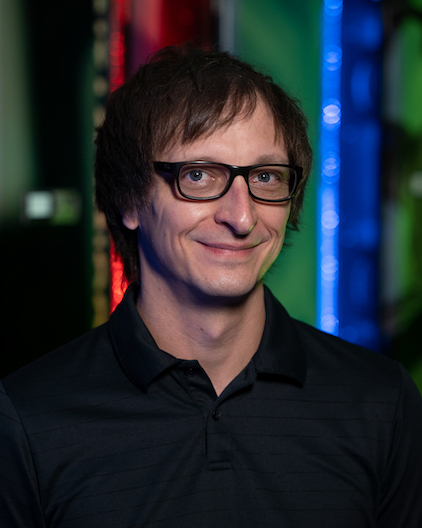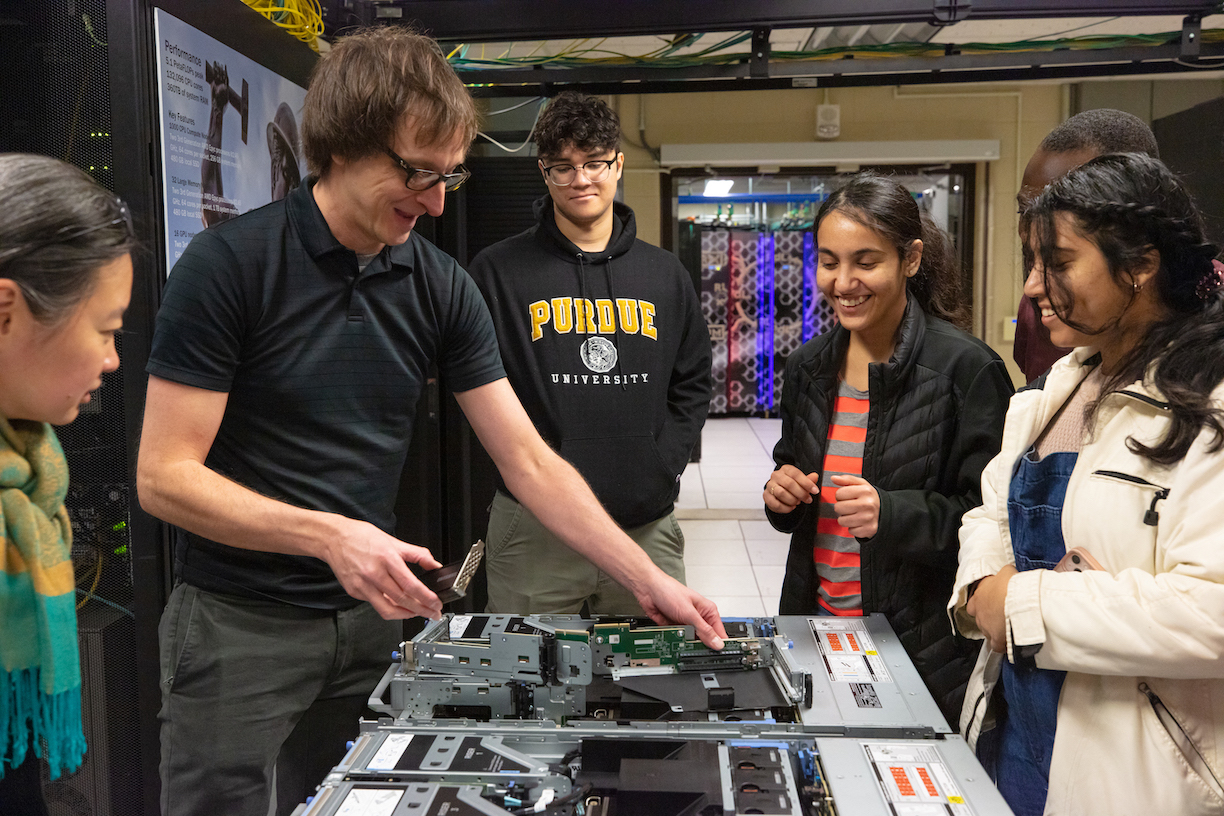News & Events
- There are no upcoming Student Events at this time.
Meet Your Mentor!
We sat down with our 2022 Anvil REU Mentors to discuss their role at RCAC, what their REU students will be working on, and much, much more. Keep reading below to learn more about your mentor.
Erik Gough

Please introduce yourself:
My name is Erik Gough, and I am a Lead Computational Scientist for the Rosen Center for Advanced Computing.
What do you do?
I am involved in many aspects of RCAC, including helping people with our Kubernetes-based cloud platforms and Grid Computing.
Why would I come to you for help?
You could come to me for help for using our Kubernetes-based cloud platforms or if you have general questions about using or building HPC systems. You could also come to me with questions or for assistance with things like Grid Computing, Open Science Grid, computing infrastructure for High Energy Physics, etc.
What’s one thing you wish you’d known when you started working in HPC?
More about the scope of how HPC can be applied across disciplines.
What’s one professional skill you’re currently working on?
Prioritization of work.
What’s your go-to productivity trick?
Close Slack.
What behavior or personality trait do you most attribute your success to, and why?
Being a good listener and letting people know their voices are being heard.
What was your first job?
Tennis instructor.
What’s the worst job you’ve ever had, and what did you learn from it?
I worked in a meat packing factory where we packaged little cans of bacon bits, which may sound awful. It could have been bad, but I worked there with a friend, which actually made it enjoyable.
What was your favorite job you’ve ever had and why?
Besides this one? Mowing lawns, one can immediately see the results of their work.
What’s a mistake you made early on in your career, and what did you learn from it?
Lost about 600 GB of researchers’ mass spectrometry data due to a double disk failure of a RAID array, including some recently collected data for some grad students’ PhD work that was not backed up anywhere. I learned to monitor RAIDs and backups more closely!
What led you to this career?
I was known as the “Linux guy” in undergrad. Because of this, a new professor came to me when he needed help building a computing cluster to do large-scale genomic data analysis. That was my first experience with HPC, and it started me on my path.
What are you currently excited about in your job?
Got a new grant to build a Ceph storage system to expand RCAC’s storage offerings.
What’s one thing that surprised you about working at Purdue/RCAC?
The scale and breadth of computing systems.
What’s a work-related accomplishment that you’re really proud of?
I was able to lead a group of 3 students in a successful REU program last summer, exposing them to HPC for the first time. This led to the students participating in the Student Cluster Competition and opened many opportunities for them for internships and job offers.
What’s the biggest misconception people have about your position?
I don’t think most people understand my position or the work I do, even after I explain it.
How long have you been on the Anvil team/at RCAC?
I have been at RCAC since 2016 and have been working on Anvil from the start (2021).
Fun fact:
I am an avid golfer
Why did you decide to become a mentor for the REU program?
I am passionate about working with students and have a long history of student engagement through teaching and mentoring student workers.
What will your REU students be working on specifically?
My students will be working on expanding the capabilities of Anvil by implementing “cloud bursting” on Anvil’s batch system, connecting Anvil to the public cloud.
Why HPC?
We use cutting-edge computing technologies to solve important research questions with real-world impact. For me, it feels better to work in this space than doing computing at a bank or social media company. As for using HPC in research, it’s hard to solve today’s research problems on your laptop. Better get a cluster (or two)!
Why RCAC/Purdue?
Purdue has a vibrant campus with lots of opportunities to collaborate with students, staff, and faculty. RCAC, specifically, is full of knowledgeable people willing to help mentor staff that are early in their careers. It is also a great place to get your education. The work we do is very similar to what is expected from MS or PhD programs in CS or IT. RCAC leadership is very supportive of continuing education and will work with you to help achieve your goals. Might as well get paid to get a degree! Also, the staff tuition remission makes it really affordable.
Where do you see HPC/Supercomputing/Research Computing going in the next 10 years?
More focus on accelerators (FPGA/GPU) and easier manipulation of those devices through software libraries. More Machine Learning/Artificial Intelligence, of course.

